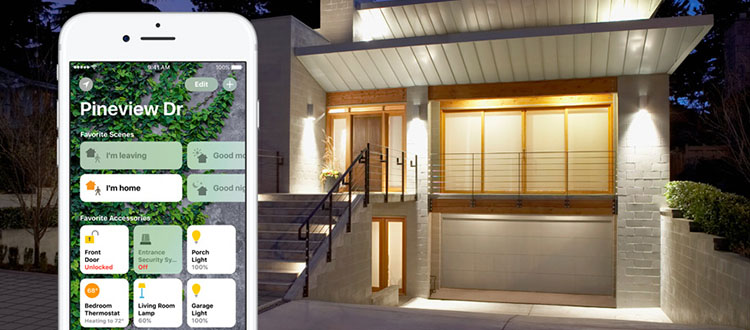
Sept. 19, 2016 | Miles Durie
Speak now
Speech-recognition tech offers in-home potential. But beware
As speech-recognition technology becomes increasingly reliable, it has the potential to become the interface of choice for just about every device we use.
On the surface, it makes sense. After all, people speak at an average of 150 words per minute, while most of us can barely type 40 on a good day.
But as convenient and novel as being able to talk to your computer, thermostat, lights and appliances might be, it comes with a few cautions.
First, though, let's talk about the good stuff.
The best-known voice-activated technologies have become incredibly accurate. According to U.S. business magazine Inc., Apple's Siri clocks in as the leader among Silicon Valley companies at 95 per cent accuracy, with Google Now and Amazon's Alexa close behind. Globally, China's Baidu search engine boasts speech recognition accuracy of 96 per cent — better than most humans. It understands both Mandarin and English, too.
All these technologies and their many competitors are striving for 99 per cent accuracy, and I have no doubt they'll get there. Of course, they all depend on you speaking in a low-noise environment. No one's come up with a system that will pick your voice out of a crowd – yet.

American boutique hotel chain Aloft recently unveiled voice-activated hotel rooms in a couple of its properties. The rooms are set up with Apple's HomeKit, controlled via an iPad running a custom Aloft app. Guests can change the room temperature and lighting, play music and get tips about local attractions, among other functions.
Of course, you could set up your home in a similar way. And for people with mobility problems or other disabilities, this kind of technology has tremendous potential for increasing independence.
But for the rest of us, just because we can doesn't mean we should, said University of Calgary professor Tom Keenan, author of the bestselling book Technocreep: The Surrender of Privacy and the Capitalization of Intimacy.
"Every time you're putting a microphone in your home, you are allowing everything you say to be listened to," he said .
And that's not paranoia; it's simple fact. When you ask your phone or device a question, the answer isn't being generated in the palm of your hand — your voice is sent to a massive array of computer servers, where it is processed and the answer is generated and shot back to you.
"And to recognize its name, it has to be listening all the time," said Keenan. "There are all kinds of privacy downsides."
What's in it for the technology companies? Knowledge is power, and tech firms are in a race to amass more data. Everything you say to your device is gold for the company running the speech-recognition engine. You're helping it recognize voices more accurately, learn new phrases and learn more about you personally so it can sell your profile as part of a marketing target group – the same way social media sites already do.
"We get into the realm of creepiness pretty easily," said Keenan.
So, use speech recognition if it's helpful, but understand what's happening behind the curtain. As Keenan said, "Every technology is going to bring benefits and risks, so be aware of the risks. It's moving fast and there's money in it."
Miles Durrie's Digital Downlow column appears exclusively in CREB®Now biweekly. Questions? Story suggestions? Email digitaldownlowcalgary@gmail.com.
Tagged: APPLE | Calgary Real Estate | Calgary Real Estate News | Digital Downlow | Guest Column | home automation | home tech | Miles Durrie | Technology | YYCRE




